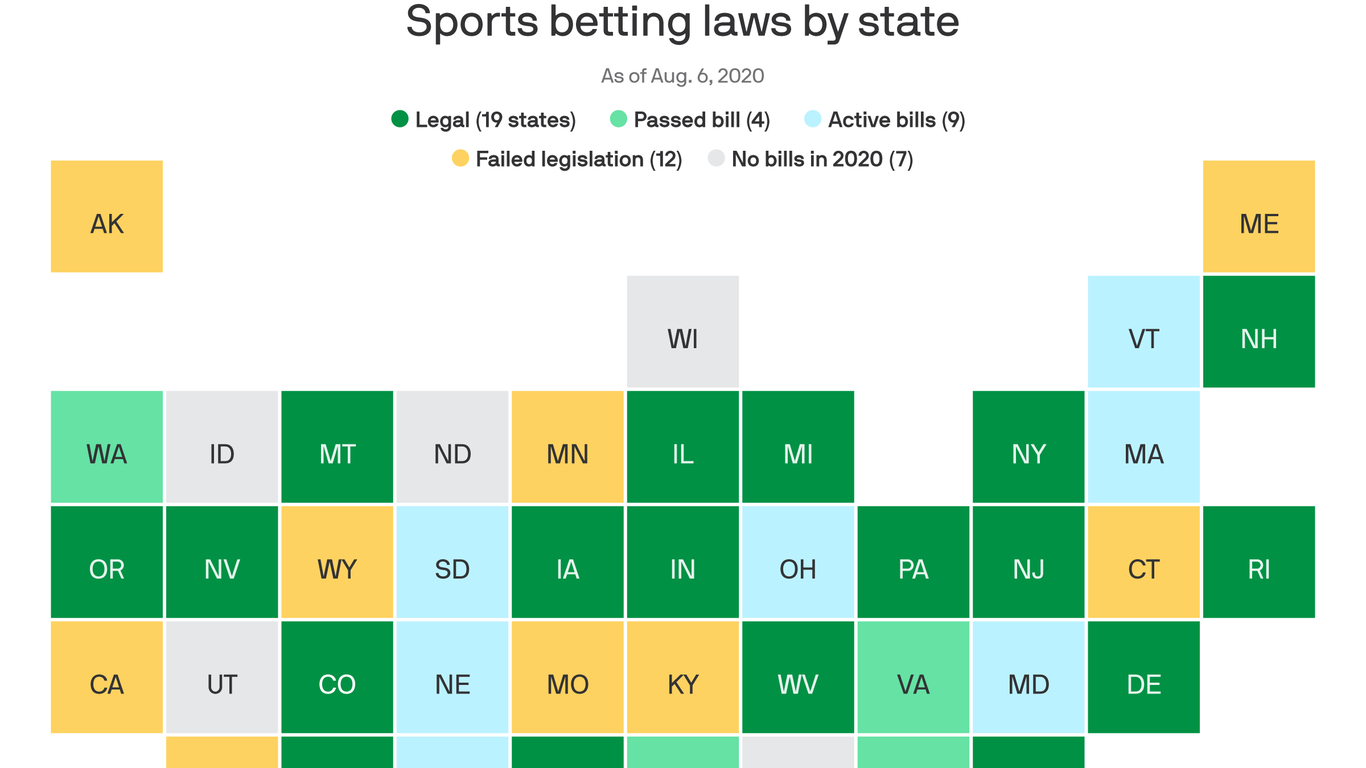Gambling Should Be Legalised
- Legalized Gambling States
- Legalized Gambling Indiana
- Gambling Should Be Legalised Or Not
- Why Gambling Should Be Legal
Examining why sports gambling should be legalized throughout the U.S.
Legalized Gambling States
Yes gambling should be legalized Gambling is an excellent source of income and can generate a giant source of revenue for businesses and can also be put towards communities and projects going on in the city that is hosting the gambling.
- Should Texas legalize gambling? Readers sound off. Editor’s note: We asked members of our Sounding Off list about expanding gambling in Texas, and this is a sampling of their responses.
- So if gambling will be legalized, they won’t need to pay other countries to gamble. They can help their own countries on increasing economic stability. If you can’t stop it, join it. This is a famous saying that is somewhat related to gambling.
(By Philip Trampe) New York’s 2019 budget has a $4.4 billion deficit with a huge cut to health care, according to Governor Andrew M. Cuomo. At the same time, according to various surveys, 46-49% of Americans claimed to place at least one sports bet a year making the US black market for sport betting according to a number of estimates to be worth around $100-200 billion. Some New Yorkers even bet on political events and managed to win. Why not push this money out of the shady underground, make it taxable and use it among other things to close budget loopholes in the regulated states and protect players risking their money on illegal offshore bookies with no benefits to the state they live in?
Look at New Jersey. Since Governor Phil Murphy signed A 4111 on June 11, legal bettors in September have more than doubled handle month over month to hit over $6.1 million dollars a day. Sportsbooks held a huge $24 million in September working out at an average $800,000 in revenue generated per day, with online and mobile betting contributing $104 million in handle, or 56% overall. $24 million in hold equates to 13%, comfortably above long-term averages. The month-over-month breakdown reveals the explosive growth in legalised sports betting in New Jersey. Whilst legalised sports betting remains in its infancy in the state, the evidence already suggests it is generating a boom for bookmakers and, ultimately, tax collectors like never before.
Sports Betting Will Need Strong Measures
Legalized Gambling Indiana
Legalizing sports betting would of course require strong measures to protect legal businesses, players’ rights and the integrity of the games. A legalised, regulated gambling industry is the best way to protect the consumer. In the UK, bookmakers are obliged to dedicate 30% of their advertising material to responsible gambling, with all adverts including ‘when the fun stops, stop’ motto. Moreover, all staff working in UK betting shops are trained to spot the signs of problem gambling and they are obliged to refuse bets from someone who appears to be at risk, whilst providing them with information on how to get support from one of the UK’s many problem gambling charities like GambleAware, all funded by the betting industry. Basically, that’s the same thing some bartenders did to me a couple of times on West Side of Midtown Manhattan when they served me water instead of another beer saying that it was “enough for me”.
Contrary to popular belief, no legal, licensed and regulated bookmaker ever has any interest in match fixing. Licensed and regulated bookmakers are obliged to cooperate with the gambling authorities whenever there is suspected match fixing. It is the bookmakers who sound the alarm in the first instance when they notice irregular betting patterns, which not only are unprofitable but also deter customers from believing that the sports events they are betting on are transparent and fair.
Betting Can Generate Huge Revenues and Rating
A regulated betting industry which is allowed to advertise can generate huge revenues and ratings for broadcasters of sports that are popular with bettors. Barclay’s Sandler estimated that sports betting ads could contribute as much as 4% to Google’s 2019 revenue. The betting industry spends around £200 million per year in the UK on advertising on TV, money which trickles down into the sports themselves via sponsorship deals, prize money and investment in players and teams.

This creates a compelling entertainment proposition and competitive activity in order for the sport to appeal to fans who may consider it a viable betting medium. Much of this commercial investment in top-class sports also trickles down to the grassroots level, with many betting companies choosing to directly invest in and support local and amateur sports as part of their commitment. However, the law should protect legal players and forbid unfair competition. Since you can’t really ban all illegal bookies by IP (people will start using VPNs), you can forbid media companies from advertising and sending them traffic.
Gambling Should Be Legalised Or Not
Sports betting is entertainment and should be fun. The aim with regulation of the industry in the USA is to put illegal companies out of business, make money taxable and protect users who would rather bet $100 legally knowing that they can withdraw in the event of a win. And, of course, taxes are paid on each and every bet.
Eighteen more states will sanction and regulate sports betting in 2019, including New York. Some say that the national legalisation of sports in the US appears to be impossible. Utah will never legalise it and other states may be much slower. However, Utah quickly legalized same sex marriage in 2013 when that outcome seemed unlikely. As such, I remain optimistic about their decision-making. The future for a regulated industry and protected bettors in the USA looks bright.
Philip Trampe is an executive at US-bookies.com.
The main difference between legal and illegal gambling is that legal gambling is monitored by government inspections agencies. But more people gamble because it is legal, and although the government collects taxes on jackpots, Indian casinos and lotteries, the system is highly subject to fraud.
Gambling online is illegal (federally), but this doesn’t stop people from doing it. And even though the Organized Crime Section of the Department of Justice found that “the rate of illegal gambling in those states which have some legalized form of gambling was three times as high as those states where there was not a legalized form of gambling,” we still believe that gambling is a drain to society. Here are our Top 5 reasons why.
Reasons why gambling should be illegal
1. Gambling is subject to fraud.
Legalized gambling, specifically Indian gaming, is the fastest growing industry in the world, and can have a corrupting influence on state government. The governments are addicted to the revenue received from Indian gaming and lotteries. Recently there have been numerous news reports of corruption and fraud in state lotteries.

2. Availability of gambling facilities increases risk of problem gambling.
Legalized gambling makes this activity available to too many people. Governments and casinos portray this as a harmless form of entertainment. Because of the availability of legalized gambling, it is more addictive and destructive than most other addictions.
Furthermore, most citizens would not gamble illegally. Legalized gambling, therefore, entices people to gamble, who normally would not gamble at all. In states with different numbers of games, participation rates increase steadily and sharply as the number of legal types of gambling increases. In fact, legalized gambling in various states has not been a competitor to, but rather has become a stimulator of illegal gambling.
The public is assured they have the potential to win a huge jackpot. All that is required is to drive to the casino or purchase a lottery ticket. Because of the availability of gambling, many gamblers become addicted and compulsive. Interested in how to quit gambling? Read more here.
3. Problem gambling costs society billions annually.
The social costs of gambling addictions will eventually impact careers, physical and mental health issues, bankruptcy, divorce, crimes, and treatment. The gamblers will eventually rely on welfare or unemployment benefits, impacting the government, and the costs could reach several billions of dollars per year.
4. Gambling exploits the poor.
Evidence shows that legalized gambling often hurts and even destroys, especially those who are poor and disadvantaged. If gambling were illegal, the gambling venues would not be able to promote their lotteries, casinos, or other forms of betting and exploit people who are most vulnerable.
5. Gambling sets a double standard for governments.
State lotteries are argueably an effective way to raise taxes. Legalized gambling is a disturbing governmental policy. Governments should promote desirable qualities in the citizens and not seduce them to gamble in state-sponsored vice. When this occurs, the government contributes to the corruption of society.
Legalized gambling is a bad social policy. At a time when independent organizations estimate that there are at least 12 million compulsive gamblers, it does not make a lot of sense to have the state promoting gambling. State sponsorship of gambling makes it harder, for the compulsive gambler to reform.
Compulsive gambling costs
In addition to the above reasons for making gambling illegals, are the economic costs that gamblers themselves incur. The average compulsive gambler has debts exceeding $80,000. Additionally, compulsive gamblers affect the lives of family, friends, and business associates. Some of the consequences of gambling include marital disharmony, divorce, child abuse, substance abuse, and suicide attempts. Other social costs surface because of family neglect, embezzlement, theft, and involvement in organized crime.
Crossing our fingers or wishing on a star will not guarantee a win. The only guarantee is, if a person is a compulsive gambler and continues to gamble, the end result is prison, insanity, or death. Whether gambling is legal or illegal, there will always be gamblers. Wanna bet?



